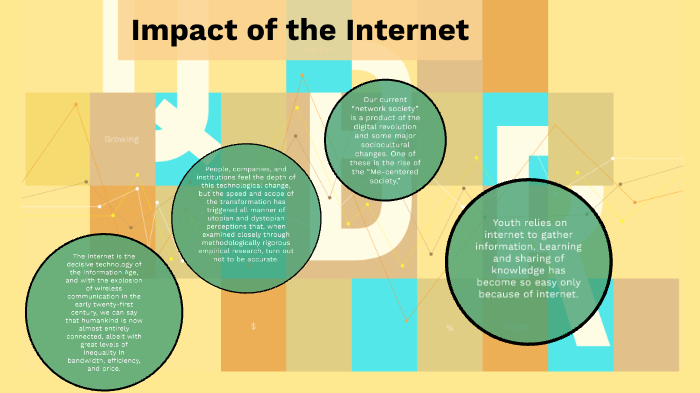The impact of the internet on fiction has been profound, reshaping not only how stories are consumed but also how they are created. In the digital age, traditional barriers have dissolved, allowing writers to share their work with audiences worldwide through blogs and social media platforms. Readers, once passive consumers, now actively engage with literature by discussing and promoting their favorite works online. This shift has altered reader engagement profoundly, giving rise to new forms of storytelling that blend conventional narratives with online experiences. As we explore how the internet changed reading habits and the landscape of fiction, it’s essential to consider both the challenges and opportunities that this dynamic environment offers.
The way we perceive and interact with storytelling has shifted dramatically in recent years, thanks largely to advancements in digital technology. The rapid expansion of the World Wide Web has transformed not only the mechanics of writing in the internet era but also the social fabric that surrounds literature. Everything from the instant accessibility of eBooks to the influence of social media on literary tastes illustrates this transformation. As readers increasingly seek community and discourse about their favorite works, the essence of fiction in the modern landscape continually adapts. Understanding the nuances of fiction in this contemporary context requires us to analyze how these digital platforms have shaped our literary experiences.
The Impact of the Internet on Fiction
The internet has fundamentally altered the landscape of fiction, giving rise to new genres and forms of expression. Writers can now share their works instantly with a global audience, bypassing traditional gatekeepers such as publishers and literary agents. This shift has led to the emergence of self-publishing platforms, and many authors find success by tapping into niche markets. Consequently, fiction in the digital age encompasses a wide variety of styles and topics, from serialized storytelling on blogs to interactive narratives in video games, broadening the scope of what fiction can be.
However, this newfound accessibility raises questions about the quality and depth of literary works. With readers becoming audiences, the pressure to cater to popular taste can stifle originality and depth in storytelling. Many authors express concerns that the instant gratification mindset fostered by the internet leads to a preference for quick reads over immersive experiences. The challenge lies in maintaining the essence of fiction as a mode of exploring complex human emotions and experiences while adapting to the fast-paced demands of online engagement.
How the Internet Changed Reading Habits
Before the advent of the internet, reading was often seen as a solitary but deeply immersive activity. Libraries served as sanctuaries where readers could browse shelves for hours, losing themselves in the written word. The ease of access to information online has revolutionized the way readers engage with texts, often fragmenting attention spans and leading to a more superficial reading experience. With the wealth of information available at their fingertips, many readers find themselves skimming content rather than savoring each word, resulting in a shift away from the deep, critical reading that novels often require.
On the positive side, the internet has provided readers with unprecedented access to a diverse array of literature. Online platforms enable readers to discover and discuss works from varying cultures and backgrounds, fostering a more inclusive literary community. Book recommendations proliferate across social media, creating vibrant discussions that encourage engagement with literature. While the habits of reading may have changed, the internet has undeniably made literary exploration easier, connecting readers with voices that resonate across geographical boundaries.
The Role of Social Media in Literature
Social media platforms have become powerful tools for writers, offering a direct line of communication to their audiences. Authors utilize these platforms to promote their works, share writing experiences, and engage with readers on a personal level. This interaction can lead to increased visibility and sales, as personal endorsements and online discussions can significantly influence a book’s success. However, the necessity of maintaining an online presence can detract from the time writers spend crafting their narratives, leading to debates on the ethics of writing in the internet era.
Moreover, social media platforms like Goodreads and Twitter serve as modern-day salons, where readers express their opinions and form communities around shared literary interests. While this democratization allows lesser-known authors to gain recognition, it also pressures writers to conform to prevailing trends and audience expectations. Literature could either thrive in this vibrant dialogue or suffer from the weight of popular opinion, with the risk of original voices being drowned out by viral content.
Writing in the Internet Era: Opportunities and Challenges
The internet has provided writers with incredible opportunities to connect with their audience and gather instant feedback on their work. Online writing workshops and forums allow for communal learning and sharing, fostering a supportive atmosphere for aspiring authors. Information on writing techniques, publishing processes, and literary trends is now readily available online, empowering writers to take control of their craft like never before. This digital mentorship can significantly enhance the quality of emerging fiction, as writers draw inspiration from a diverse range of influences.
However, navigating this vast digital landscape comes with its own challenges. Writers must contend with a shifting publishing industry, where traditional publishing models are being disrupted by self-publishing and online content consumption. As a result, many authors feel the pressure to produce more work in shorter timeframes, which can detract from the creative process. Additionally, the omnipresence of the internet can lead to distractions, making it difficult for writers to achieve the focused attention that deep storytelling requires.
Engaging Readers Online: Beyond the Page
Online engagement has transformed how authors connect with their readers, fostering a sense of community that transcends the traditional author-reader dynamic. Campaigns like Twitter chats, virtual book clubs, and interactive social media posts invite readers to participate actively in discussions about stories, characters, and themes. This engagement not only promotes literary enthusiasm but also provides valuable insights for authors as they gauge reader reception and preferences. Authors can craft follow-up stories or series based on direct feedback, ultimately shaping their writing to better resonate with their audience.
While this increased engagement has its perks, it also poses risks. Readers may develop expectations for real-time responses and increased content, leading to potential burnout for writers. Furthermore, the emphasis on brand-building can eclipse the creative aspects of storytelling, shifting the focus from an intrinsic love of writing to the external pressures of maintain an online persona. Finding a balance between maintaining a genuine connection with readers and producing quality fiction becomes crucial for authors seeking to thrive in this new landscape.
The Evolution of Narrative Devices in Digital Fiction
The internet has not only influenced how fiction is consumed but has also led to an evolution in narrative devices. Traditional plot structures have adapted to accommodate multi-platform storytelling, where authors incorporate elements like hyperlinks, multimedia, and reader interactivity into their narratives. This dynamism allows readers to experience stories in sophisticated ways that were previously unattainable within the confines of printed pages, opening new avenues for creativity.
However, this shift raises challenges as well. Some critics argue that the proliferation of interactive narratives and multimedia storytelling may compromise the depth of traditional narratives. As authors attempt to cater to the demands of digital storytelling, there is a risk of sacrificing character development and emotional intimacy. Striking a balance between innovation and the core values of storytelling becomes imperative as writers explore the boundaries of fiction in the digital era.
Creative Research in the Age of the Internet
Research has become more accessible than ever due to the internet, enabling writers to gather information quickly without the constraints of traditional libraries. The ability to find primary sources, historical references, and even connect with real-life experts enhances the authenticity of narratives and enriches stories with factual depth. Platforms like Google Scholar, online databases, and digital archives provide a treasure trove of information, making the research process not only easier but often more dynamic.
While the internet allows for speedy research, it also presents challenges in verifying information. The prevalence of misinformation and the prevalence of curated content can lead writers to inadvertently incorporate inaccuracies into their narratives. Authors must develop a discerning eye for reliable sources, balancing the convenience of online research with a commitment to authenticity and truth in their storytelling endeavors.
Literary Trends Shaped by Digital Culture
The digital age has birthed new literary genres and movements that reflect society’s ongoing dialogue with technology. From speculative fiction exploring artificial intelligence to memoirs examining life under social media scrutiny, contemporary literature is increasingly influenced by the digital landscape. Many authors tackle themes of connectivity, identity, and disconnection, offering insights that resonate with readers living in an interconnected world.
These trends also provoke discussions about the nature of literature itself: what constitutes a ‘book’ in a world where stories can be disseminated through tweets or blog posts? As literatures evolve, they challenge the boundaries of traditional forms, necessitating adaptations in both writing and reading practices. Authors, critics, and readers alike are tasked with reconceptualizing literary values, opening dialogue about the relevance of fiction in an era dominated by technology.
The Balance Between Online and Offline Reading Experiences
While the internet offers a wealth of convenience and accessibility, many readers lament the loss of immersive, uninterrupted reading experiences that come with physical books. The tactile pleasure of turning pages, the distinct smell of paper, and the overall sensory engagement that comes with traditional reading can often be overshadowed by digital formats. As eBooks and audiobooks gain popularity, readers find themselves grappling with how to maintain focus amidst the distractions of notifications and online browsing.
To counteract this challenge, many readers are consciously carving out dedicated time for offline reading, seeking to replicate the engrossing quality of fiction from previous generations. Joining book clubs, libraries, and reading challenges helps encourage deeper literary engagement that fosters community support. As readers strive to balance the benefits of digital access with the enriching experience of reading in its purest form, both authors and readers continue to explore the evolving relationship between literature and technology.
Frequently Asked Questions
How has the internet changed reading and the availability of fiction?
The internet has revolutionized how we access and consume fiction. With eBooks and online platforms, readers can easily download their favorite novels from anywhere. This digital age offers convenience and increased accessibility, allowing readers to explore a wider range of genres and authors without the limitations of physical bookstores.
In what ways has social media impacted literature and the perception of fiction?
Social media has transformed literature by turning readers into active participants rather than passive consumers. Platforms like Twitter and Instagram allow authors to engage their audiences directly, share updates, and receive immediate feedback. However, this can also lead to a focus on popularity over literary merit, shifting how fiction is critiqued and consumed.
What is the relationship between writing in the internet era and audience expectations?
Writing in the internet era requires authors to navigate the changing expectations of their audiences. With instant feedback and reviews available online, writers may feel pressured to cater to public taste instead of focusing solely on their artistic vision. This often results in a tension between maintaining personal authenticity in storytelling and meeting mass market demands.
How has the availability of online resources affected research for fiction writers?
The internet has made research significantly easier for fiction writers. Authors can quickly access vast databases, digital archives, and instant information about various topics, enhancing their work’s depth and authenticity. This time-saving resource allows writers to delve into the intricacies of their narratives without extensive library visits, shaping more informed and detailed storytelling.
Can the internet enhance reader engagement with fiction?
Yes, the internet enhances reader engagement by fostering communities where book lovers share recommendations, reviews, and discussions. Online platforms enable readers to connect over shared interests, leading to a more immersive and interactive experience. This collective dialogue helps to sustain interest in fiction and lets authors see the impact of their work within a vibrant community.
What challenges do authors face in maintaining their voice in the digital age?
In the digital age, authors often grapple with maintaining their unique voice amid the pervasive influence of social media and public opinion. The immediacy of online feedback can sometimes compel writers to alter their narratives to align with audience expectations, potentially diluting their original intention and authenticity, which are essential for impactful fiction.
How does the rise of online reading platforms affect traditional publishing?
The rise of online reading platforms challenges traditional publishing by democratizing access to literature. Self-publishing options allow many authors to bypass conventional routes, leading to a more diverse range of voices. However, this can make it harder for traditional publishers to identify standout works, as the sheer volume of content available online increases competition.
What are the implications of the shift from traditional to digital mediums on storytelling?
The shift from traditional to digital mediums has significant implications for storytelling. Authors can experiment with interactive narratives, such as serialized stories or multimedia integrations, which cater to diverse reader preferences. However, this transition may also diminish the depth of certain narratives, as the quick consumption of content online can affect the immersive quality of storytelling.
Has fiction adapted to the changes brought by the internet, and if so, how?
Yes, fiction has adapted to the changes of the internet by incorporating contemporary themes such as digital culture and social media dynamics. Authors are increasingly exploring the complexities of modern life that arise from our online interactions. Additionally, the structure of narratives is evolving, with some opting for shorter formats that align with readers’ quick consumption habits.
| Key Points |
|---|
| Fiction reflects the human condition and has evolved alongside storytelling traditions. |
| The internet has dramatically changed reader behavior, turning readers into audiences influenced by public opinion rather than personal taste. |
| Writers may adjust their work to cater to mass public preferences, potentially compromising the depth and subversive nature of fiction. |
| The internet aids research, allowing writers to access a wide variety of information quickly, altering the nature of their storytelling. |
| The convenience of online resources often leads to less time spent on immersive reading experiences. |
| Some writers lament the loss of narrative devices that rely on characters getting lost or disconnected, now made obsolete by constant connectivity. |
| Despite the drawbacks, the internet provides opportunities for emotional truth and connection through fiction. |
Summary
The impact of the internet on fiction is profound, shaping how stories are told and consumed. As we navigate a digitally dominated landscape, readers, once solitary recipients of narrative, now engage as part of an audience heavily influenced by social media trends and public opinion. The richness of literary exploration risks being overshadowed as writers face pressures to conform to popular tastes. Despite these challenges, the internet also offers unprecedented access to research and resources, allowing novelists to enrich their storytelling while also presenting new complexities in the reading experience. Consequently, for writers and readers alike, understanding the implications of this digital transformation is crucial for preserving the essence of fiction as it continues to evolve in the age of the internet.



